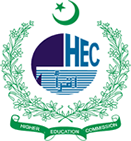Publication Ethics
The Pakistan Journal of Physical Therapy (PJPT) upholds the highest ethical standards in research and publishing, adhering to established international frameworks such as COPE and ICMJE. These guidelines provide authors and reviewers with clear principles to ensure ethical compliance and integrity in submitted manuscripts.
1. Authorship and Contributions
Authorship is limited to individuals who meet all four ICMJE criteria:
- Significant contribution to research design, data collection, or analysis.
- Drafting or critical revision of the manuscript.
- Approval of the final manuscript version.
- Accountability for all aspects of the work.
Others who contribute but do not meet these criteria should be acknowledged. Changes to authorship during submission require approval from all authors and notification to the editor. Submissions must be original and not under consideration elsewhere.
2. AI Usage in Research and Writing
The Pakistan Journal of Physical Therapy allows the use of Generative AI tools, such as ChatGPT, for improving grammar, spelling, and language clarity in manuscripts. However, authors must ensure the following:
- Originality: The use of AI should not compromise the originality or scholarly contribution of the work. The content must be the authors' own intellectual creation.
- AI Contribution Limit: AI-generated content must not exceed 5% of the total manuscript.
- Disclosure: Authors must clearly disclose the use of AI tools in the manuscript's acknowledgments or methods section, specifying the tools used and their purpose.
- Authorship: AI tools cannot be listed as authors. The listed authors are fully responsible for the content of the manuscript, including AI-assisted sections.
- Plagiarism and Accuracy: Authors are responsible for ensuring that AI usage does not result in plagiarism and that AI-generated content is accurate, valid, and appropriately integrated into the manuscript.
3. Handling Complaints and Appeals
Authors may appeal editorial decisions by providing detailed responses to reviewer comments. Appeals will follow COPE guidelines. Complaints about published articles will be investigated thoroughly, with outcomes communicated transparently.
4. Conflicts of Interest
All conflicts of interest, including financial, professional, or personal relationships, must be disclosed during submission. If none exist, state "No conflicts of interest to declare."
5. Data Sharing and Reproducibility
Authors are encouraged to share data supporting their research findings. Both primary and secondary data should be valid and reproducible, adhering to ethical and legal standards.
6. Ethical Oversight
For studies involving humans or animals, authors must provide evidence of ethical approval. Informed consent is required when participants' identity or data is used. Vulnerable populations should be handled with additional care to ensure their dignity and rights are respected.
7. Intellectual Property
Authors retain copyright of their work and grant publishing rights to Pakistan Journal of Physical Therapy. PJPT follows an open-access model under the Creative Commons Attribution 4.0 International License (CC BY), ensuring wide dissemination and reuse with proper credit.
8. Post-Publication Discussions and Corrections
PJPT encourages constructive dialogue on published articles. Errors should be promptly reported, and necessary corrections or retractions will follow COPE guidelines.
9. Research Misconduct
PJPT takes research misconduct seriously, including plagiarism, data fabrication, or duplicate publication. Allegations are investigated per COPE standards, and appropriate actions, including retractions, will be taken.
10. Participant Confidentiality
Manuscripts must protect participant confidentiality and dignity. Explicit consent is required for using personal or identifiable information.
11. Funding and Clinical Trial Registration
Authors must disclose all funding sources. Clinical trials must be registered in an appropriate registry before commencing the study.
By adhering to these ethical standards, PJPT ensures the credibility, transparency, and integrity of the research it publishes.


